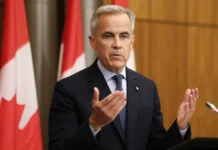Banjul, 17 May 2022 (TDI): Yasuhiro Tsumura, the WFP country director to The Gambia, met with Dr. Demba Sabally, the new Gambian Minister of Agriculture, on May 16, 2022.
During the meeting, both sides agreed to deepen further cooperation at all levels. In the context of serious global food crises, WFP and the Gambian government declared the significance to work together widely.
State of Food Security in The Gambia
According to the Food and Agriculture Organization (FAO), The Gambia is a country with a classification that is one of the least developed, lowest income food-deficit countries. 31.7% of the population in The Gambia is living in extreme poverty.
The situation has become worse after the outbreak of COVID-19. Before the pandemic, the economic growth in The Gambia was 6.1% in 2019 and 7.2% in 2018.
However, the epidemic has dragged the nation’s current account deficit from 5.3% of GDP in 2019 to 8.6% before the end of 2021. From the perspective of agriculture, by the end of 2019, the sector employs about three-quarters of the local labor force.
Moreover, in The Gambia, smallholder farmers supply about 90% of the domestically produced food. Under such circumstances, food security can make multiple impacts not only on the economy in The Gambia but also on the daily life of local people.
Furthermore, data shows that at least 13.4% population of The Gambia is in food insecurity in the year 2021. To be specific, 1.8% of those parts of the population are severely food insecure, while 11.6% of them are moderately food insecure.
Currently, with the spread of COVID-19, and the severe geopolitical conflicts, the food security situation in The Gambia can become even more serious. There is no doubt that more efforts should be put in from all kinds of available resources.

WFP in The Gambia
As a significant international partner to The Gambian government, the WFP team has been working in the country since 1972. Project-oriented food assistance has been the most significant and common action taken by the WFP.
Actually, to a wider extent, WFP’s projects do not only aim on dealing with food aid. In fact, WFP’s projects also link and coordinate with national policies to get rid of poverty.
Until now, the WFP has already worked on at least five main areas in The Gambia. They are crisis response, school feeding, nutrition, market support, and capacity strengthening.
Chensi is majored in diplomacy. Her main research interests include Sino-African relations, African foreign affairs, public diplomacy and sustainable development.








